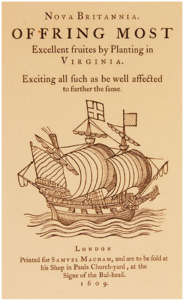Tech titans ready their clouds for NOAA weather data by Greg Otto.
From the post:
It’s fitting that the 20 terabytes of data the National Oceanic and Atmospheric Administration produces every day will now live in the cloud.
The Commerce Department took a step Tuesday to make NOAA data more accessible as Commerce Secretary Penny Pritzker announced a collaboration among some of the country’s top tech companies to give the public a range of environmental, weather and climate data to access and explore.
Amazon Web Services, Google, IBM, Microsoft and the Open Cloud Consortium have entered into a cooperative research and development agreement with the Commerce Department that will push NOAA data into the companies’ respective cloud platforms to increase the quantity of and speed at which the data becomes publicly available.
“The Commerce Department’s data collection literally reaches from the depths of the ocean to the surface of the sun,” Pritzker said during a Monday keynote address at the American Meteorological Society’s Washington Forum. “This announcement is another example of our ongoing commitment to providing a broad foundation for economic growth and opportunity to America’s businesses by transforming the department’s data capabilities and supporting a data-enabled economy.”
According to Commerce, the data used could come from a variety of sources: Doppler radar, weather satellites, buoy networks, tide gauges, and ships and aircraft. Commerce expects this data to launch new products and services that could benefit consumer goods, transportation, health care and energy utilities.
…
The original press release has this cheery note on the likely economic impact of this data:
…
So what does this mean to the economy? According to a 2013 McKinsey Global Institute Report, open data could add more than $3 trillion in total value annually to the education, transportation, consumer products, electricity, oil and gas, healthcare, and consumer finance sectors worldwide. If more of this data could be efficiently released, organizations will be able to develop new and innovative products and services to help us better understand our planet and keep communities resilient from extreme events.
…
Ah, yes, that would be the Open data: Unlocking innovation and performance with liquid information, on which the summary page says:
Open data can help unlock $3 trillion to $5 trillion in economic value annually across seven sectors.
But you need to read the full report (PDF) in order to find footnote 3 on “economic value:”
3. Throughout this report we express value in terms of annual economic surplus in 2013 US dollars, not the discounted value of future cash flows; this valuation represents estimates based on initiatives where open data are necessary but not sufficient for realizing value. Often, value is achieved by combining analysis of open and proprietary information to identify ways to improve business or government practices. Given the interdependence of these factors, we did not attempt to estimate open data’s relative contribution; rather, our estimates represent the total value created.
That is a disclosure that the estimate of $3 to $5 trillion is a guess and/or speculation.
Odd how the guess/speculation disclosure drops out of the Commerce Department press release and when it gets to Greg’s story it reads:
open data could add more than $3 trillion in total value annually to the education, transportation, consumer products, electricity, oil and gas, healthcare, and consumer finance sectors worldwide.
From guess/speculation to no mention to fact, all in the short space of three publications.
Does the valuing of open data remind you of:
(Image from: http://civics.sites.unc.edu/files/2012/06/EarlyAmericanSettlements1.pdf)
The date of 1609 is important. Wikipedia has an article on Virginia, 1609-1610, titled, Starving Time. That year, only sixty (60) out of five hundred (500) colonists survived.
Does “Excellent Fruites by Planting” sound a lot like “new and innovative products and services?”
It does to me.
I first saw this in a tweet by Kirk Borne.
